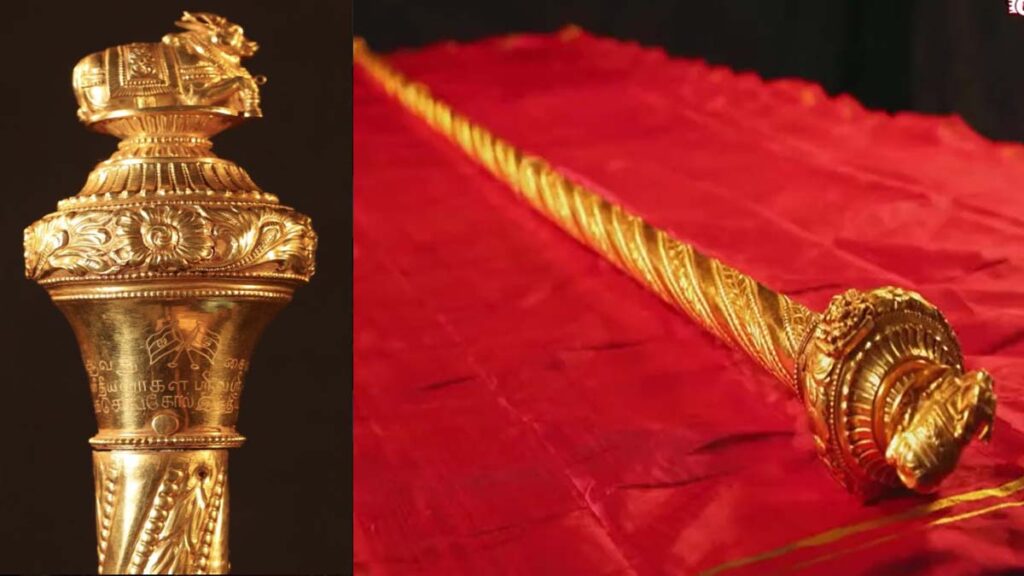Manas Dasgupta
NEW DELHI, June 9: The Congress has described as “fake” the BJP’s earlier claim that “Sengol” was handed over to the first prime minister Jawaharlal Nehru as “symbol of transfer of power” but the subsequent Congress governments “insulted” it by tucking it away in a museum.”
The Congress communication in-charge Jairam Ramesh quoting a report in a section of the press on the head pontiff of the Thiruvavaduthurai Adheenam, the Tamil Nadu based religious organisation which was said to have presented the “Sengol” to Nehru, on Friday tweeted that the BJP’s “fake factory” had been “exposed” that the “Sengol” was a “symbol of transfer of power.”
“The BJP’s claim that the “Sengol” was a symbol of transfer of power from the British to former Prime Minister Jawaharlal Nehru has been exposed,” Jairam Ramesh said. Citing the report, he said it was clear that neither Lord Mountbatten nor C. Rajagopalachari were present at the handing over of the “Sengol” to Nehru as claimed by the BJP. The ceremonial sceptre was presented to Nehru at 10 p.m. on August 14, 1947, at his residence.
Ahead of the inauguration by the prime minister Narendra Modi of the new Parliament building and ceremonial installation of the “Sengol” next to the Speaker’s chair in the Lok Sabha on May 28, the BJP had alleged that the Congress displayed disregard for Hindu traditions by calling the sacred “Sengol” a “golden stick gifted” to India’s first Prime Minister Nehru and tucking it away in a museum. “The vesting of the “sacred ‘Sengol'” with Nehru, on the eve of India’s Independence, was the exact moment of transfer of power from the British to India,” the BJP IT Cell chief Amit Malviya had claimed on May 26.
Even then Ramesh had disputed BJP’s claim pointing out that there was no documented evidence of Mountbatten, Rajagopalachari, and Nehru describing the “Sengol” as a symbol of transfer of power by the British to India. Rajagopalachari was the first Indian-born Governor-General who succeeded Mountbatten.
In a tweet on Friday, the Congress leader said, “So the BJP’s ‘Fake Factory’ stands exposed today by none other than the revered head Swamigal of the Thiruvavaduthurai Adheenam himself. No Mountbatten, no Rajaji, no part in official transfer of power on August 14, 1947. But yes, the majestic “Sengol” was indeed presented to Nehru as I have been saying all along.”
“Here are some more facts to nail the lies of today’s Raja and his drumbeaters,” he said citing an advertisement dated August 29, 1947, on the presentation of the ceremonial sceptre to Nehru at 10 p.m. on August 14, 1947, at his residence. “It was clearly an initiative of the Thiruvavaduthurai Adheenam itself,” he said. In the photo, he said, the famed Nagaswaram virtuoso TN Rajaratnam Pillai is marked.
“Here is what is said on him in an article on a website of the Union Ministry of Culture: When India attained independence Rajaratnam was sent to Delhi by the Pandarasannadhi of the Tiruvaduturai Matam to present on his behalf a mace of solid gold senkol (symbol of righteous administration). Rajaratnam was thrilled by this proud privilege. It was Dr. P Subbaroyan who introduced him to Prime Minister Jawaharlal Nehru to whom Rajaratnam played the Nagaswaram before handing over the mace,” Ramesh tweeted.
“There is no mention of Mountbatten or even Rajaji. Rajaratnam Pillai is himself the subject of a fascinating new biography by an eminent Japanese ethnomusicologist in which the August 14, 1947, episode is mentioned,” the Congress leader said on Twitter. The Congress general secretary has been claiming that the “Sengol” was never presented before Mountbatten or Rajagopalachari as a symbol of transfer of power.

